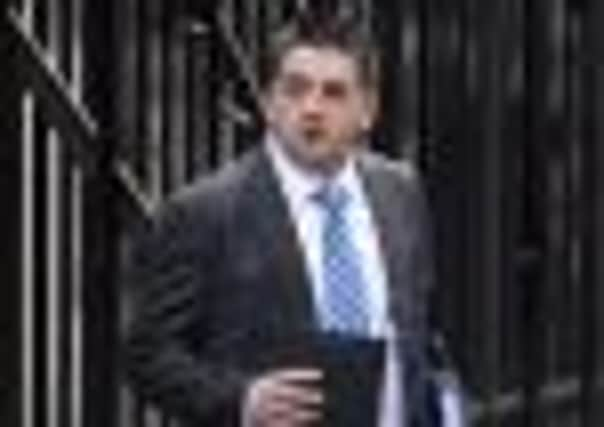Leveson inquiry: NOW installed Trojan virus onto intelligence man’s family computer


Ian Hurst told the hearing he learned this year that the paper installed a “Trojan” programme on his family computer in 2006 that allowed it to access his messages and other documents.
Mr Hurst served in covert Army units in Northern Ireland between 1980 and 1991 specialising in recruiting and developing agents within paramilitary organisations, the press standards inquiry heard.
Advertisement
Hide AdAdvertisement
Hide AdHe featured in a BBC Panorama programme broadcast in March this year which alleged that a fax containing extracts of his emails was sent to the Dublin office of the News of the World in July 2006, the hearing was told.
Mr Hurst said in a statement to the inquiry that the News of the World may have been trying to obtain information about the British intelligence agent within the IRA known as Stakeknife.
Panorama’s journalists told the former intelligence officer that the now-defunct Sunday tabloid hired a private investigator to target him, who in turn commissioned a specialist hacker - referred to only as Mr X - to access his computer.
Mr Hurst knew Mr X as someone who had served in the intelligence community in Northern Ireland and arranged to meet him to question him about these claims, the inquiry heard.
“He more or less charted the events from the middle of June 2006, he states for a three-month period, and all the documents he could access via the back door Trojan - emails, the hard drive, social media,” Mr Hurst said.
“He did not say this but the Trojan that we have identified would have allowed the webcam, so he could have actually seen me or my kids at the desk.”
Mr X said he infected the computer by sending an email from a bogus address and tricking Mr Hurst into opening the attachment, the inquiry heard.
But the former intelligence officer said he believed the virus actually came from a “trusted media contact from a well-known newspaper”.
Advertisement
Hide AdAdvertisement
Hide Ad“The type of Trojan which is deployed by newspapers or private detectives isn’t that sophisticated, and you have to open an attachment,” he said.
“The ones which would be used by governmental agencies would be, for instance, with a microdot, a full stop, so you wouldn’t need to open the attachment.”
Counsel to the inquiry, Robert Jay QC, said: “The unusual feature of your case is that the targeting of you is likely to have been not for the purpose of investigating issues relating to your personal privacy, but perhaps in a very different and in one sense sinister way, matters bearing upon your work in the intelligence community in Northern Ireland and any aftermath which followed from that.”
Mr Hurst replied: “I don’t think that’s a fair analysis. I think they were looking to obtain a commercial advantage as well.”
He told the inquiry that when police arrested Mr X in April 2009 they found the hacker had obtained his wife’s CV, pin number and documents connected to their telephone number and address.
Mr Hurst alleged that the police were involved in covering up the journalistic abuses and urged Lord Justice Leveson to require the Metropolitan Police Service (MPS) to provide him with “all intelligence of police corruption, including at the very highest level”.
“The MPS have let society down, they should be making a full disclosure to you,” he said.
Jane Winter, director of human rights charity British Irish Rights Watch, told the inquiry that Mr Hurst contacted her in July to tell her that emails she sent to him had been illegally accessed.
Advertisement
Hide AdAdvertisement
Hide AdShe said: “From the point of view of my organisation, we really rely on trust and confidentiality and we deal with people from all sides of a very difficult situation in Northern Ireland.
“When I first heard that these documents had been compromised, my first thought was if all the people we help hear about this, they will lose confidence in us through no fault of our own and that is a very chilling thought.
“It is a real issue that this could dent our reputation for confidentiality.”
end 281358 NOV 11